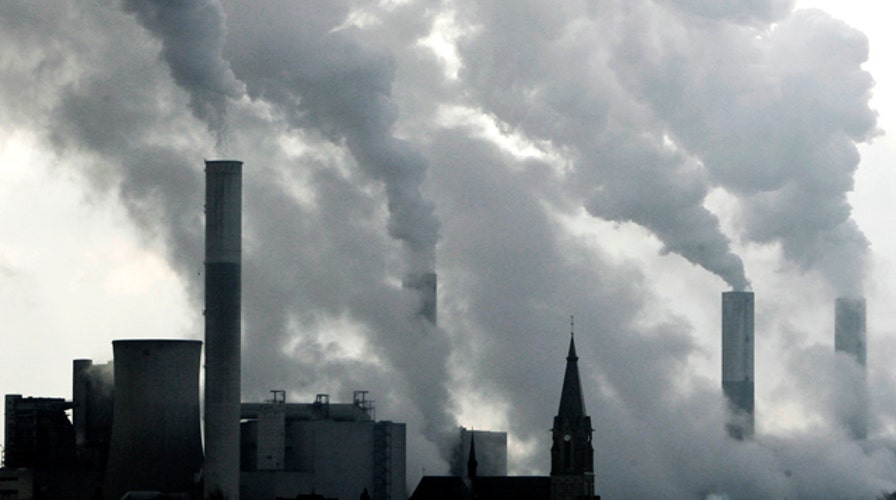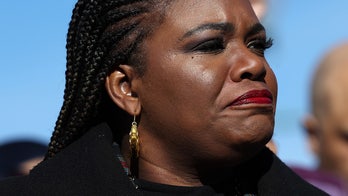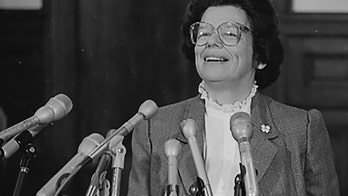In the climate change debate, believers and skeptics alike have vastly different opinions based on widely divergent facts.
That was illustrated by Wednesday's release of "Climate Change Reconsidered II," a study by the Nongovernmental International Panel on Climate Change, which draws its conclusions from thousands of peer-reviewed papers, and which finds global warming to be an entirely manageable, if not beneficial, change in the climate.
The report stands in stark contrast to the U.N.'s latest Intergovernmental Panel on Climate Change report of March 31, which predicts "severe impacts" from climate change, but which was toned down from earlier IPCC reports that predicted an array of global catastrophes resulting from the proliferation of greenhouse gasses into the atmosphere.
The IPCC reports have, through the years, stood as the unassailable foundation for the Obama administration regulatory policy on global warming. "The debate is settled. Climate change is a fact," Obama said in his 2014 State of the Union Address.
"The dirty little secret is , we are now at 17 years and 8 months of no global warming," says Roger Pilon, Vice President for Legal Affairs at the Cato Institute. "Their models have failed year in and year out, " he says of the scientists who comprise the 97 percent consensus the administration frequently cites.
The NIPCC report finds:
-- That warming from greenhouse gases will be so small as to be indiscernible from natural variability.
-- The impact of modestly rising CO2 levels on plants, animals and humans has been mostly positive.
-- The costs of trying to limit emissions vastly exceed the benefits.
The NIPCC report was immediately assailed by administration supporters. The website Media Matters reported that the NIPCC study was published by the conservative Heartland Institute, which previously denied the science demonstrating the dangers of tobacco and secondhand smoke. (In fact, Heartland's denial of the dangers of second hand smoke was re-affirmed by a large scale 2013 study in the Journal of the National Cancer Institute which found "no statistically significant relationship between lung cancer and exposure to passive smoke.")
Yet, the administration and its supporters seem unbowed by any contrary findings of the dangers of global warming. Just this week, in testimony before the Senate Foreign Relations Committee, Secretary of State John Kerry said of global warming, "All of the predictions of the scientists are not just being met, they're being exceeded."
Speaking in Portland, Oregon Tuesday night, former secretary of state and potential Democratic presidential candidate,Hillary Clinton said to vigorous applause, "Climate change is a national security problem, not just an environmental problem."
Skeptics believe those statements are demonstrably false. They point to observable data, not computer modeling, to prove their point. "Carbon dioxide does not cause weather to become more extreme, is not causing polar ice and sea ice to melt, is not causing sea level rises to accelerate," Joseph Bast of the Heartland Institute said at a Washington event in which the NIPCC report was released.
All of this is leading Congressional doubters to further question an array of EPA regulations the president has unleashed to maneuver around Congressional resistance to cap and trade and other carbon-mitigating legislation.
In a Senate Appropriations Committee hearing Wednesday, Senator Lisa Murkowski, R-Alaska, told EPA Administrator Gina McCarthy, "The sheer number of proposed rule makings, coupled with cost of compliance with the vast array of regulations already on the books...is very, very frustrating."
Longtime climate change skeptic Sen. Jim Inhofe, R-Okla., introduced legislation last week that would tackle the administration's regulatory end-run around Congress. It would prevent the EPA from issuing any final rule until it conducts an economic analysis as required under the Clean Air Act.





